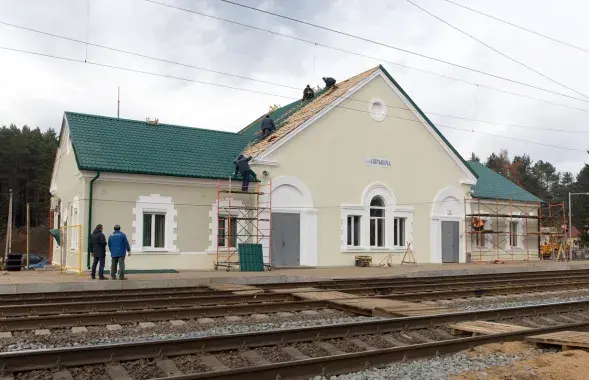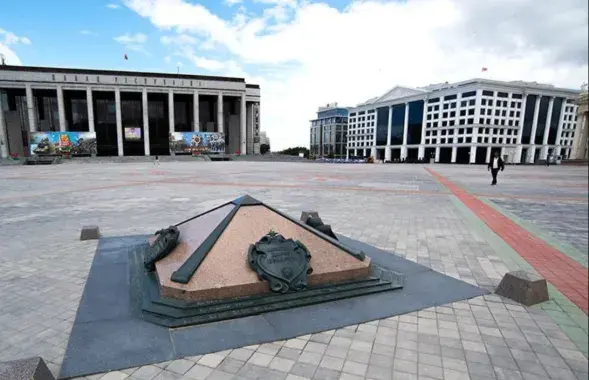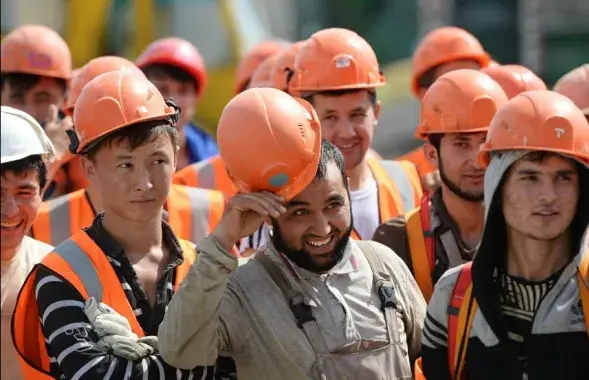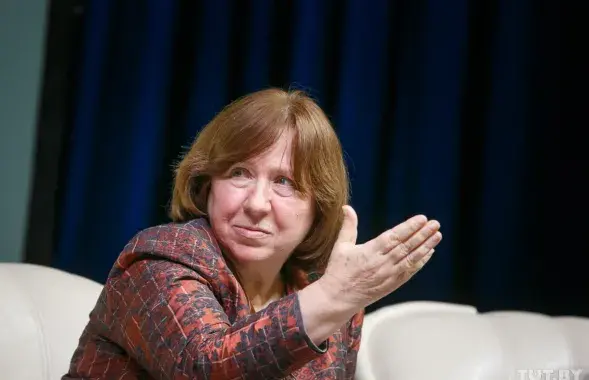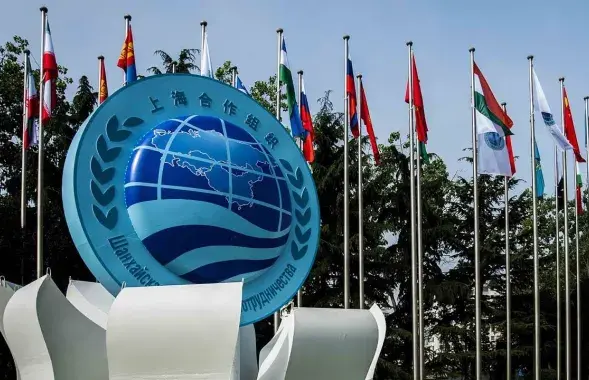Siarhej Chaly: Belarus will face devaluation in 2011
The independent analyst has told Euroradio how Belarus is going to pay for the 500 dollars average salary,
why devaluation without rapid exchange rate changes is inevitable next year, and which other problems the new President will have to solve as soon as he is elected.
Siarhej Chaly: The last time when Belarus kept incomes and
expenses more or less in balance was the first quarter of the year 2006.
Since then, the incomes has grown slower than the budget. Let us take a
look at the year 2010. Neither manufacture nor incomes of enterprises
which pay salaries have grown. There is a hole in the budget. However,
the wage rate is increased by 15% + 31% — nearly by 50%. Where are we
supposed to take the money from?
Euroradio: We can take a credit from China - 15 million dollars. That will be enough for everyone.
Siarhej Chaly: The
Chinese are not stupid. They give money only for certain projects.
These are not money to scrape one's living. Russia obviously is not
going to lend us anything. We are most likely to address to the IMF
again, but we did everything against their recommendations during this
year. As for Euro bonds - these are too expensive money for us.
Euroradio: So, what variants do we have then?
Siarhej Chaly: They
can be counted by fingers on one hand. Increasing taxes? But our
taxation legislation is way too strict, just take a look at the Doing
Business rating. Lessen the expenses? This contradicts the current
political necessity. We tried to do that in the first half of the year
2009. In the end of the year we stopped and decided to refuse from such a
goal. To increase external debt? This is partly used, but see the
above. Privatization? Almost stopped. It turns out, there are no sources
of finance apart from emission financing.
Euroradio: Maybe
it is reasonable to desrease the wage rate to what it used to be, right
after the elections, to close this hole in the budget?
Siarhej Chaly: Decreasing
the first class wage rate is something highly unlikely. There is a
concept in the economics - "sticky salaries". In political terms, it is
very difficult to decrease such salaries nominally, by the quantity of
money people receive. It is much easier to slow down the temps of their
growing. To abolish bonuses. And, definitely, really (like, in recount
for bread and milk) the salaries decrease by themselves under the
influence of inflation.
Euroradio: That means, we'll print money again?
Siarhej Chaly:
Yes. But it's not that simple. People start realising those are not the
money they earned, that the money is nowhere to take, that it's just
paper which will be given to them. Our people are experienced in that,
they survived several crises, they know what inflation is and where it
comes from. They know it can't be so - someone prints the paper money
and gives it to you and you become richer... Three-four months is the
time lag, after which the wage rate increase will be demolished by
inflation.
Siarhej Chaly: There
are a lot of myths in our economy. For example, everyone calls it
export-oriented, I don't know why. In fact, it's not export-oriented. As
in such economy internal demand is sacrificed to the advantage of
external one. The course of the national currency is artificially
decreased so the export in foreign currency would be cheaper. In fact,
this would mean conscious decrease of internal demand through weakening
of the buying capacity of our rouble. This is what China does all the
time - everyone presses it to increase the course of yuan, but in vain…
And
we have everything just the other way round! Since 2001, when the goal
of rising the average salary was first set, the whole economic policy
has worked for increase of internal demand. Thus, as a certain moment
our export was not enough to cover the internal demand. So, we are not
an export-oriented country, but an import-dependent one.
Euroradio: Are you talking about the balance of foreign trade again? Isn't it a new а new problem of our economy?
Siarhej Chaly: We
are repeating the mistakes which led us to January 2009, but faster. We
"speed up" the internal demand, we fixed the rouble rate and have a
high internal inflation. Internal prices in roubles grow, which means
the export prices in foreign currency also grow. The difference between
the internal and external inflation, to which the rouble rate does not
react, creates potential for its overestimating. Overestimating of the
real rate, not the nominal one. In fact that means storing of
devaluation potential.
If we had a market rate, not the fixed
one, it would correct itself depending on difference of inflations. Our
internal inflation is 10%, while external is almost nothing. Thus, the
rate would fall by 10% within a year.
Euroradio: In January 2009 we recompensed that by devaluation.
Siarhej Chaly: However,
the devaluation was not sufficient. During 2009 the foreign trade
credit balance remained unchanged. It was the same as it used to be.
However, there were many negative consequences of the devaluation.
First, currency panic. People's deposits in dollar equivalent lessened
twice. It is an enormous outflow of deposits and correspondingly
pressure on the cash currency. To get rid of the panic we had to
considerably increase percentage rates so that deposits in foreign
currency become more attractive. Secondly, we had to fix the rouble
exchange rate. In fact, the three-currency basket is the same as simple
fixation. It just looks different.
Euroradio: Why?
Siarhej Chaly: Because
the National Bank ties rouble to dollar anyway. We can easily prove it -
if we visit the web-site of the National Bank we'll see the dollar rate
is refined to a single rouble, while all the other currencies have
several numbers after the comma. They are counted while the dollar rate
is defined.
We did it to soothe people. It should have been done
once, as an overdose of aspirin given to a patient to shake the fever
down. However, things are still like that! In addition to that, this
"attraction of generousity" called "500 dollars of salary" began.
Euroradio: So what - do we have a pre-devaluation situation now?
Siarhej Chaly: Yes,
everything reminds the end of 2008. The only difference is that now
it's a bit easier at foreign markets as the crisis is over. There's no
decrease of our export, there is even a little growth.
Euroradio: How Belarus could have avoided such a situation?
Siarhej Chaly: We
had some little opportunities for that. Panic was over in the middle of
2009. Then we should have let the rate pace with inflation, even
surpass it. In fact, we could have conducted the same devaluation, but a
very predictable and long-term one. Such devaluation would not lead to
currency panic.
Euroradio: You mean, to transfer to market currency exchange rate?
Siarhej Chaly: In that case, probably, people would get used to it and would not be so afraid of inflation. We had a chance to substitute targeting of the rate for targeting of inflation. But we did everything the other way round: we kept the rate and stimulated internal demand. So now the situation is absolutely different: people will get their +31% of wage rate in December and run to the currency exchange offices to insure themselves from devaluation.
Euroradio: Aren't they already there?
Siarhej Chaly: Since Summer 2010 Belarusians buy more currency that sell. They have made a record on the quantity of currency bought in June, then another record in July, and that's the last month we have statistics about.
As a result we found ourselves in the situation when we have double deficit - in the budget and in the foreign trade balance.
Euroradio: Are we to start being afraid of devaluation from now on?
Euroradio: It is more likely to lose on differences of buy-sell exchange rates.
Siarhej Chaly: Even the gradual devaluation can make export more attractive, and import more expensive, through currency rate. It's not actually that good for us, as our manufacture has great import capacity. There is also another devaluation - internal one. Limitation of budget expenses and real incomes of the population. This is the stage which the Baltic Stated passed without devaluation. Unpopular measures, but from the point of view of macroeconomics these devaluations give the same consequences.
Actually, we will have to do both devaluations. The new President will have plenty of economical problems, moreover, he will have to deal with them on the spot.
Euroradio: Is anything being done in this direction at the moment?
Siarhej Chaly: Vice versa! Piotr Prakapovich comes to the President saying the National Bank can even narrow the currency corridor. However, what we need to do is not to make statements like "we'll never let it happen", as people distrust such promises. The national bank can do it? Let's check if it's true, think the people.
What we should have done is, the other way round, to announce the rouble rate will get down, but not accidenatlly and no one knows when, but predictably. At the same time, deposits in roubles should become more attractive in view of rouble rate decrease.
Euroradio: Like, the authorities announce rouble will get cheaper. However, I know if I place it in the bank, I will not lose it.
Siarhej Chaly: When you don't know what to expect and when you will be hit in the head, then comes panic. When people do not trust the promises of the central bank, they become currency jobbers. Currency jobbers take the "against" position when they do not believe the bank. They find the opportunity to claim the authorities do not fulfill their promises, like, when they promise to fix the rate where it's impossible. In our case it is already happening - the population chooses dollars.
Euroradio: There is also the Russian gas issue, which would obviously complicate the budget situation even more next year.
Siarhej Chaly: I don't think prices for gas will increase considerably. 250 dollars - that's a bluff. I don't know where such a number comes from. As far as I know, "Gasprom" only abolished the 10% discount. Gas prices are stable. We will just add 10% to the 195 dollars for 1000 cubic meters we pay in the third quarter of 2010- and that will be the new price.
Euroradio: Does any of the contenders understand all these problems?
Siarhej Chaly: I haven't seen any of this in the programs of either the candidate No.1, or candidates Nos. 2-17. They say more about new working places. But the point is, whoever wins the elections, he will have to do one and the same things. And these measures will be rather painful. Such will be the price of the year from last October-November till this October-November, which we just lost. We decided we have cured, stopped all the reforms and started moving forward.
